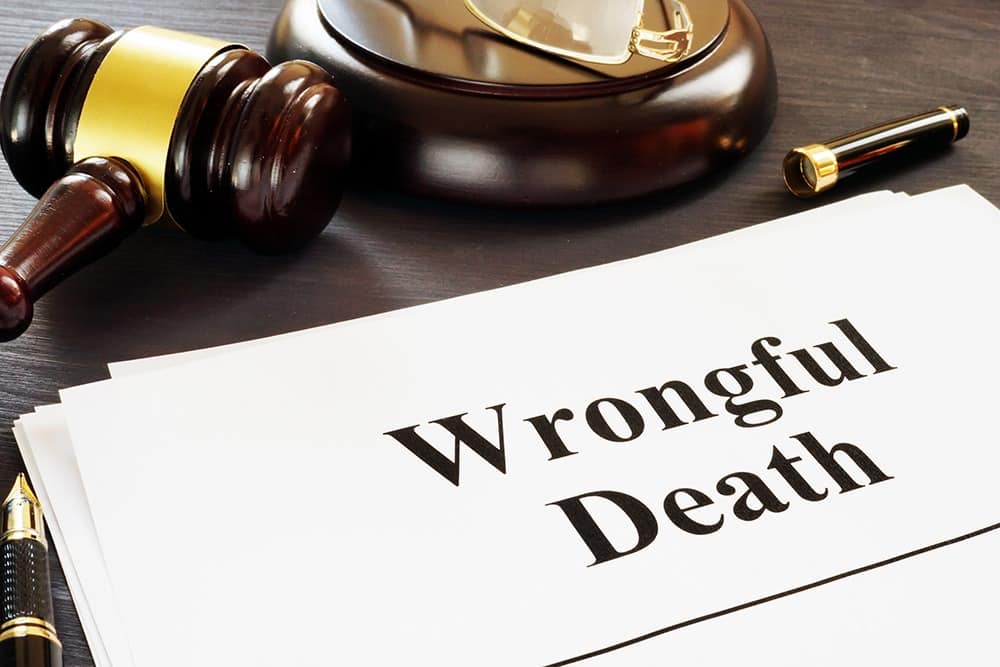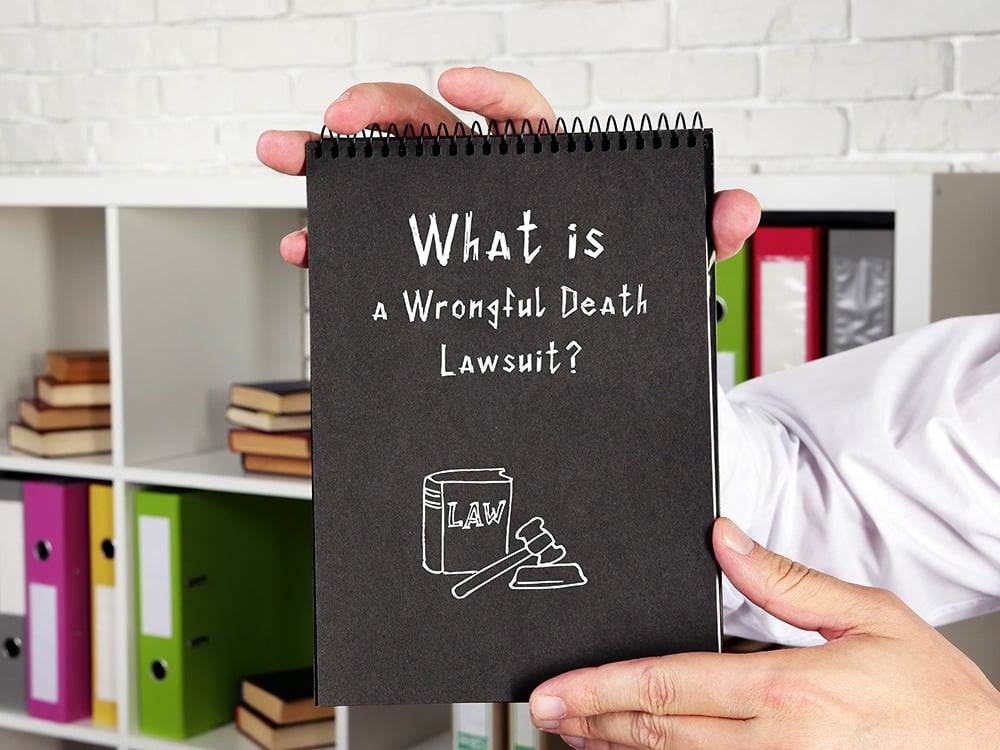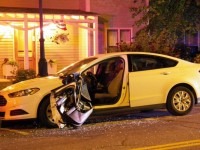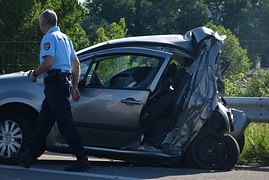What Happens When a Wrongful Act Leads to a Tragedy?
It goes without saying that this is the most trying of times, filled with unimaginable loss and seemingly unmanageable grief. Baltimore personal injury law provides that where a “wrongful act” (an act, including criminal conduct, negligence, or the improper operation of a vehicle) causes another’s death, an action for damages against that person may be maintained. This claim must generally be filed within 3 years. A wrongful death action is intended primarily for the benefit of a spouse, child, or parent. It is intended to compensate those beneficiaries for their sorrow, their emotional turmoil, and those things they lost the chance to have if their loved one had lived. A wrongful death additionally serves the subsidiary purpose of holding the at-fault individual responsible for the harm they have caused.

Accountability. Compensation. Security.
“An experienced, dedicated wrongful death attorney immediately collecting and preserving vital facts and evidence is a pivotal first step in the pursuit of justice.”
In the wake of any tragedy giving rise to this type of claim, the victim’s family is frequently overwhelmed by emotion, final arrangements, insurance and estate matters, and potentially new responsibilities and obligations. A way of life may have been forever altered, and a new path forward must be found. Obviously, the family needs time, and often help, in making these adjustments. The death of a husband, wife, parent, or child is an eviscerating emotional blow that frequently also has the cruel dual effect of devastating a family’s financial future.

What Type of Compensation is Awarded in a Wrongful Death Case?
Maryland law provides for the recovery of both economic and non-economic damages in a wrongful death case. The sudden, unexpected passing of the primary wage-earner for a family can have devastating immediate and long-term financial implications. The survivors are entitled to compensation for both the income and earnings they would have received and their emotional turmoil.
A spouse, child, or parent may recover compensation for the following:
- Loss of future earnings
- Mental anguish
- Emotional pain
- Loss of companionship, comfort, protection, care, attention, advice, counsel, training, and guidance.
Obviously, no one would exchange the life or health of a loved one for money. But, after these unforeseen tragedies, Maryland law will allow for monetary compensation to soothe the searing sense of loss, anguish, and torment experienced by the survivors and caused by the sudden, unlawful death of a loved one.
What Are The Factors Considered In Determining The Value Of A Wrongful Death Claim?
How Are Economic Damages Calculated?
An unexpected death often has immediate and long term financial ramifications for the family. Compensation is therefore also awarded for future losses, whether that takes the form of earnings and monetary support the decedent would have provided, or the loss of the companionship the victim would have shared with the survivors. If there is no spouse, child, or parent, then an action may be brought for the benefit of a blood or marital relative dependent on the decedent for support under some circumstances.

What is the Statute of Limitations for a Wrongful Death Claim?
A wrongful death claim must generally be filed in a court of law within 3 years of the date of death, or it will be forever barred by statute. Other important and potentially shorter time limitations may also be implicated, and prompt consultation with a seasoned fatal accident attorney is vital.
If the cause of death was an “occupational disease” [a disease caused by exposure to any toxic substance in the person’s workplace and contracted by a person in the course of the person’s employment] an action must be filed within 10 years of the time of death, or within 3 years of the date when the cause of death was discovered-whichever is shorter.
Source: Courts and Judicial Proceedings Article § 3-904.

What is Considered a Wrongful Act?
Maryland law defines a “wrongful act” as an act that would have entitled the party injured to maintain an action and recover damages if death had not ensued.
A wrongful act causing the death of another can be:
- An act of negligence
- A medical or surgical error
- An intentional criminal act such as assault
- The improper operation of a car, truck, motorcycle or boat

How Does Maryland’s Damage Cap Work?
Maryland has chosen to artificially limit the amounts survivors and beneficiaries can recover in a wrongful death case and developed a set of rules pertaining to economic and non-economic damages. Maryland law does not cap the number of economic damages that can be awarded in a wrongful death suit. Economic damages reflect compensation for:
- Past medical expenses
- Future medical expenses
- Past loss of earnings
- Future loss of earnings
There is, however, a cap on non-economic damages, which are defined as: mental anguish, emotional pain and suffering, loss of society, companionship, comfort, protection, care, marital care, parental care, filial care, attention, advice, counsel, training, guidance, or education, or other non-economic damages. As of 7/15/20, the current limitation is a maximum non-economic award in a wrongful death case is $890,000 for a single beneficiary or $1,335,000 if there are two or more beneficiaries.
If a jury- which is not told of the cap, awards more, it will be reduced by the court. The cap increases by $15,000 on October 1 of each year. A different cap will apply if the action is based on medical malpractice.

A Related Claim: Survival Action
A wrongful death claim belongs to and is brought by the survivors or beneficiaries of the victim to recover what they have lost as a result of the death of their parent, spouse, or child. Maryland law recognizes a separate and distinct claim, called a survival action, which belongs to the victim, and allows their estate to recover those things they could have recovered had they not died. Compensation in a survival action typically includes:
- Medical expenses and property damage
- Funerary expenses
- Lost wages accruing between the injury and death
- Conscious pain, suffering, and mental anguish accruing between the injury and death
Because the right to bring the survival claim belonged to the deceased victim and survived his or her death, their estate brought the claim. Section 7-401 of the Estates Article gives the personal representative of the estate the authority to bring the claim. A survival claim is frequently brought at the same time as a wrongful death claim. This claim also must generally be filed within 3 years. The same individuals are often, but not always, the same in both claims. Indeed, the proceeds of a wrongful death claim and survival claim often go to the same group of people [i.e. the survivors or beneficiaries- generally the immediate family]. However, the methods of recovery are different. The parties in a wrongful death claim are the beneficiaries recognized by law- generally the spouse, parent and children of the victim. Proceeds from a wrongful death belong to those individuals in an amount fixed by the court. Proceeds from a survival action belong to the estate. Those funds are disbursed according to the terms of the victim’s will. If there is no will, then the funds are distributed by a default scheme called intestate succession.
Who Receives the Compensation From a Maryland Survival Claim if There is No Will?
I’ve been told by many of my clients that the sudden loss of a cherished family member was the most difficult, challenging, and horrifying event in their life. Where the wrongful act of another causes that tragedy, the loss may be even more poignant and piercing. I offer any potential client a complimentary legal analysis of the issues involved in their loss.





